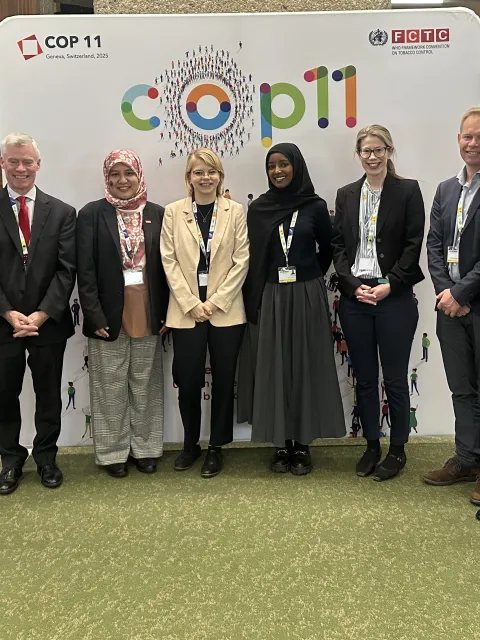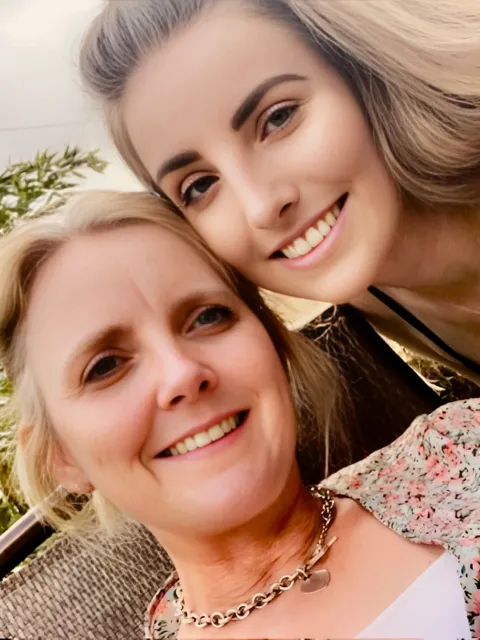AORTIC 2025 focuses on sharing knowledge and strengthening cancer control efforts across Africa and the Eastern Mediterranean
AORTIC 2025 brought together experts and advocates to address common challenges, improve cancer data and national strategies, with UICC contributing insights on health systems, cancer planning, AMR, and people-centred care.

HIGHLIGHTS
-
AORTIC 2025 drew attention to the importance of national cancer control plans (NCCPs), more equitable access to care, and including the voices of people affected by cancer in policymaking.
-
UICC's contributions to the programme focused on improving health systems via NCCPs, showcasing global examples, technical tools, and cancer data advances.
-
Key issues included data-driven planning, the revised TNM classification system, and antimicrobial resistance (AMR).
From 2-5 November in Hammamet, Tunisia, the AORTIC 2025 conference – organised by the African Organisation for Research and Training in Cancer – brought together experts, practitioners, and advocates from across the continent and beyond.
The event drew attention to building capacity for cancer advocacy, research and training in Africa.
“It was inspiring to see such strong engagement from across the African cancer community around people-centred strategies and evidence-based planning. From policy dialogue to civil society engagement, the spirit of collaboration was palpable.”
– Dr Miriam Mutebi, UICC Board Member and Immediate Past President of AORTIC.
UICC contributed to the programme with a session titled “Improving health systems for cancer through NCCPs – UICC members perspective,” which focused on how countries are using cancer strategies to organise and strengthen their responses, and another entitled "Featuring African examples and strategies for evidence-based NDCCP implementation."
They placed particular emphasis on ensuring equity in cancer care, and embedding the perspectives of people affected by cancer in planning and policy-making. Discussions highlighted in particular a renewed momentum for cancer planning, strong calls for regional collaboration, and the importance of robust data systems.
The sessions also drew from the global review of NCCPs published earlier this year and presented by Yannick Romero and Zuzanna Tittenbrun who lead the technical assistance workgroup within International Cancer Control Partnership (ICCP) for UICC.
Examples spanned the full range of cancer care, from prevention and screening, early detections to survivorship and palliative care. Case studies also highlighted the importance of data systems and cancer registries, and engaging people living with cancer to inform policy decisions.
Participants were also introduced to tools from the ICCP, including its planning portal and offers of technical support.
“People affected by cancer must be involved from the very beginning. Their lived experience ensures that plans are realistic, rooted in context, and able to reach the most vulnerable.”
– Eman Shannan, Director of the Aid and Hope Program for Cancer Patients Care (Palestine), a UICC member organisation
Another topic discussed at the session was about including mitigation strategies for antimicrobial resistance (AMR) in NCCPs. UICC presented its dedicated AMR webpage with relevant resources for cancer planners, notably a policy brief on the urgent steps required to address AMR in cancer care, and the critical role of the cancer health workforce.
In the scientific programme, two poster presentations supported by UICC highlighted advances in data and evidence-based practice. Dr James Brierley, Co-Chair of the UICC TNM Core Committee, presented revisions to the 9th edition of the TNM Classification of Malignant Tumours.
The second poster shared findings from two global surveys on cancer data needs, with input from population-based registries, clinical stakeholders, and support groups across income settings. The first were published earlier this year in UICC’s academic journal, the International Journal of Cancer, “Future of population-based cancer registries”; the second paper is still beingn drafted.
“The upcoming TNM 9th edition reflects the latest scientific evidence and ensures cancer staging remains relevant and applicable globally. Accurate classification drives better care,” said Dr Brierley.
Eight member organisations participated in the conference through UICC’s patient group mentoring programme to support their work advocating for people affected by cancer, offering visibility to the contribution of civil society to national cancer strategies.
“We’re truly grateful to UICC for the scholarship that made it possible for us to represent the Barbara Nassar Association at the AORTIC Conference. It allowed us to exchange valuable knowledge and build strong connections with international cancer organisations. This experience strengthened our visibility and partnerships, helping us expand our impact in supporting cancer patients in Lebanon.”
– Léonie Nassar, Barbara Nassar Association, a UICC member organisation.
The UICC team also facilitated a workshop for African advocates to strengthen national advocacy plans. Participants developed SMART objectives and exchanged feedback on policy strategies.
Throughout the event, UICC staff met with members and partners at the exhibition area, shared updates on upcoming initiatives, and discussed ongoing collaboration. Attendees learned more about the upcoming World Cancer Day campaign, the World Cancer Declaration, and the next World Cancer Congress.
A major highlight came during the Monday plenary session chaired by Dr Miriam Mutebi, when UICC President-Elect Dr Zainab Shinkafi Bagudu announced that the next World Cancer Leaders’ Summit will be hosted in Nairobi, Kenya. The announcement was met with great enthusiasm and sparked strong interest among regional organisations to participate.
At the same time, AORTIC elected Dr Cesaltina Lorenzoni as its new President and announced that AORTIC 2027 will also take place in Nairobi, Kenya, marking a major milestone for regional cancer control efforts.
The role of AORTIC as a platform for regional exchange, policy dialogue, and collective problem-solving remains critical as countries continue to face rising cancer incidence with often limited resources.
Last update
Monday 10 November 2025
